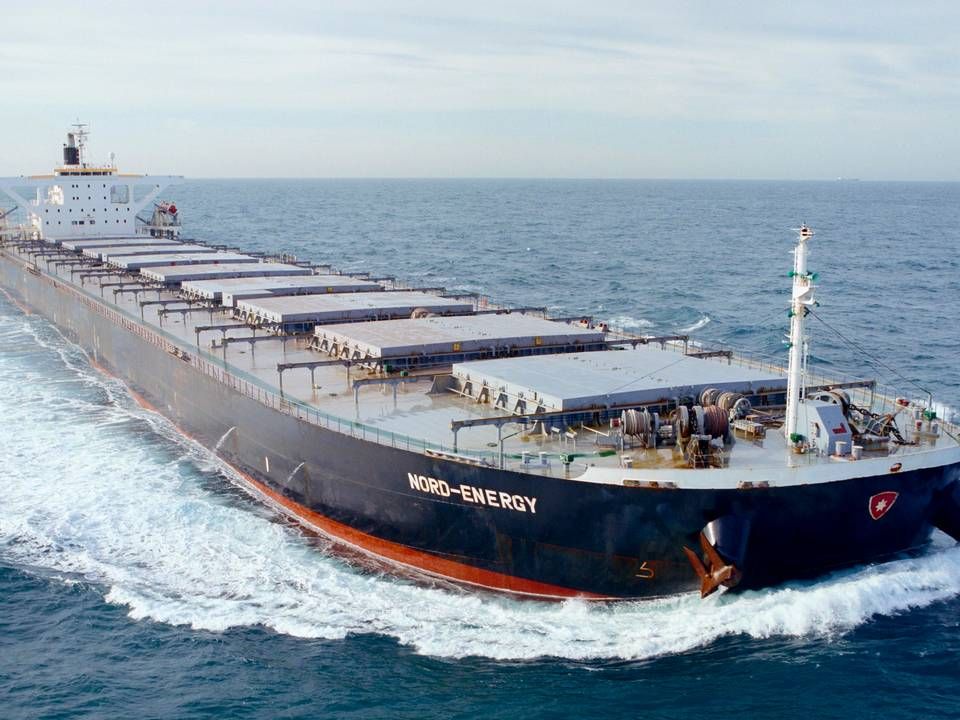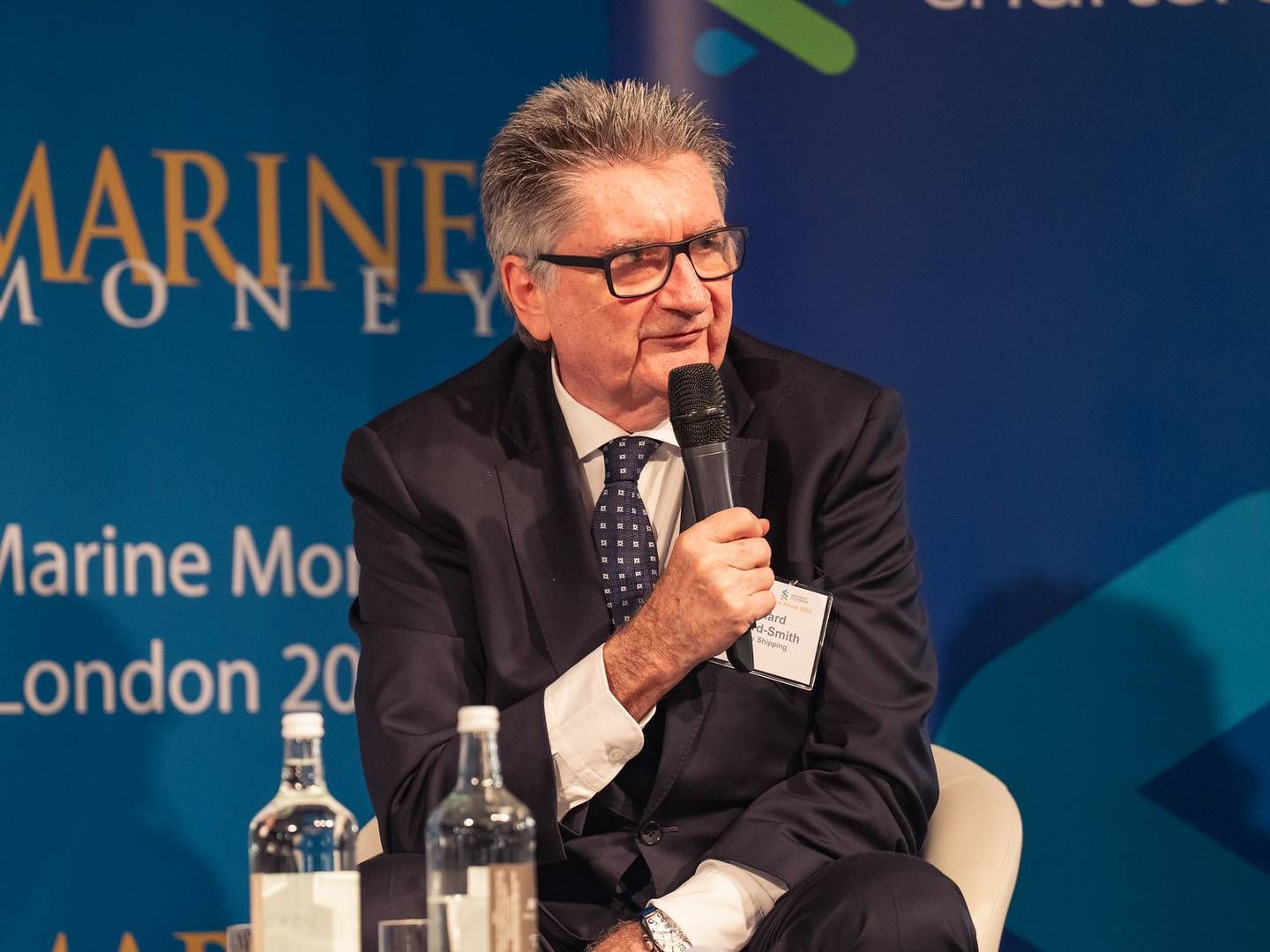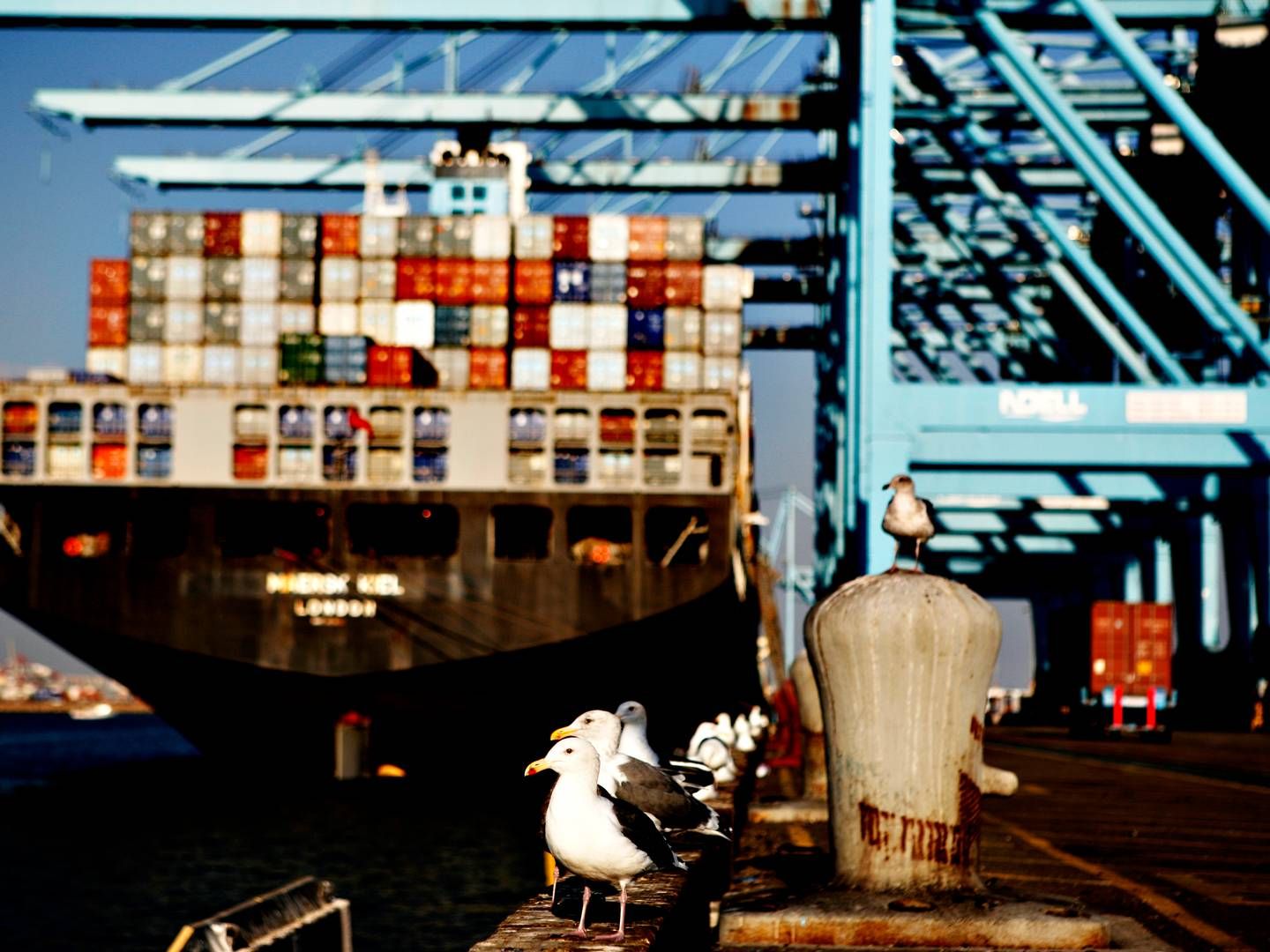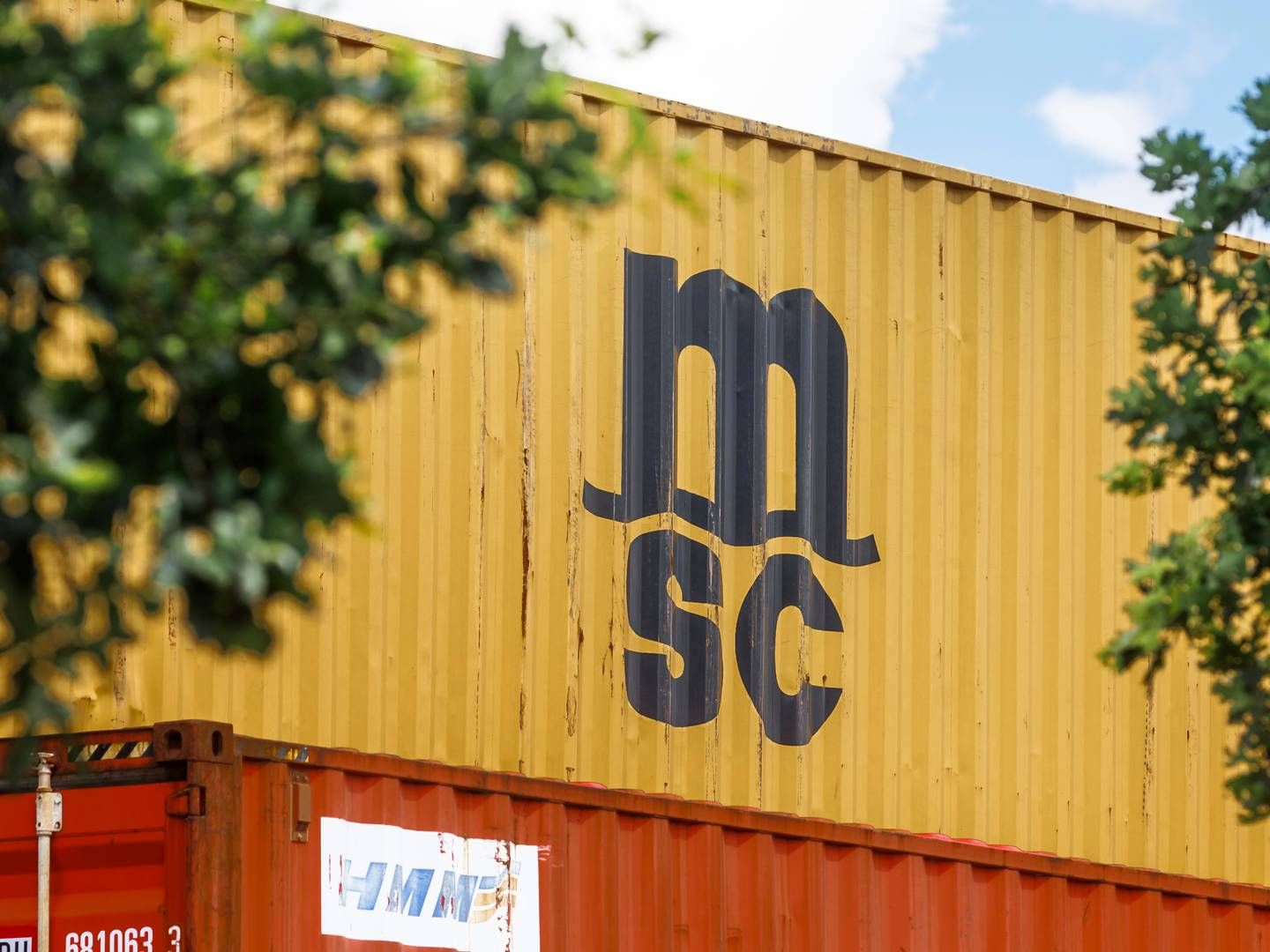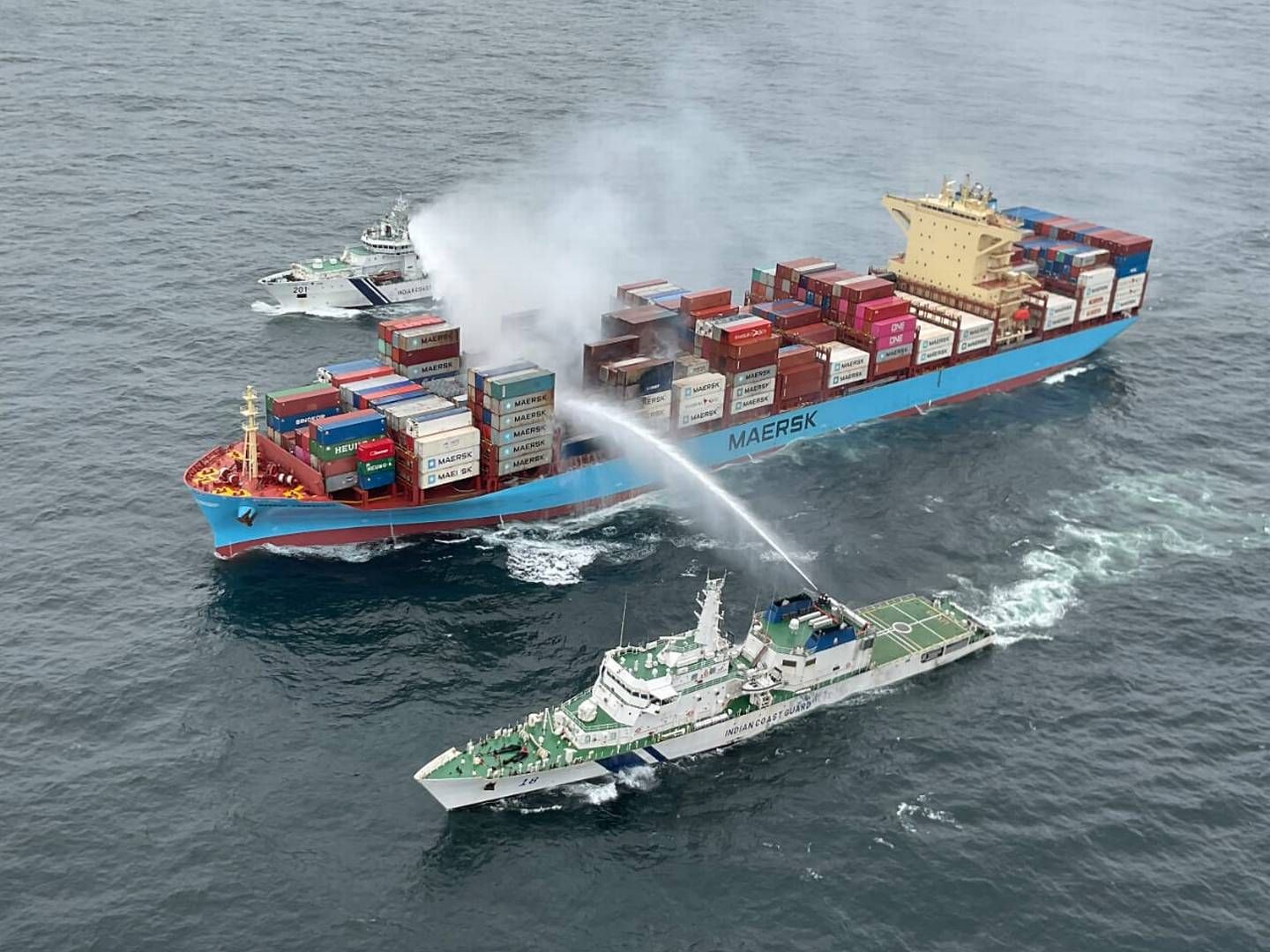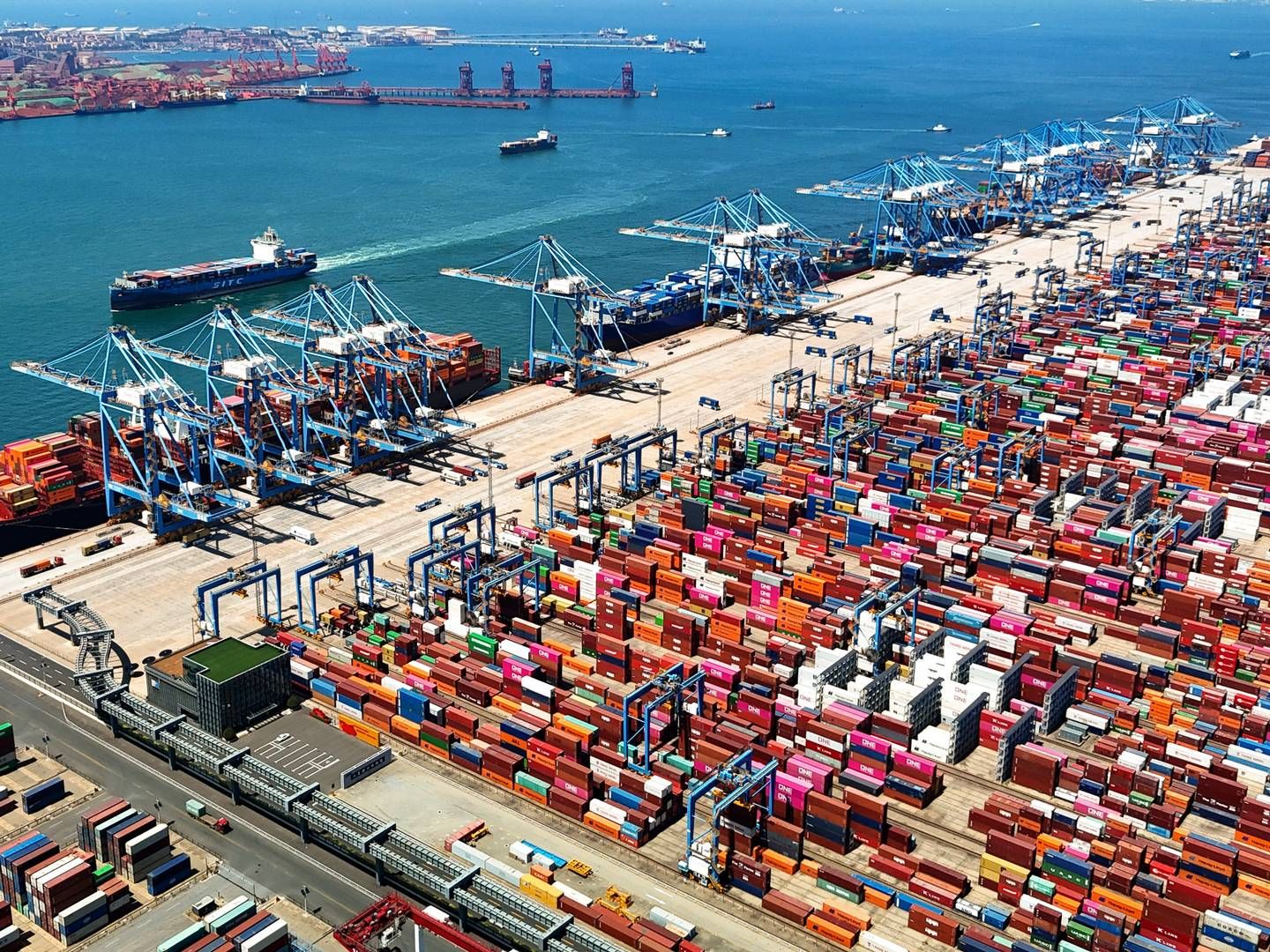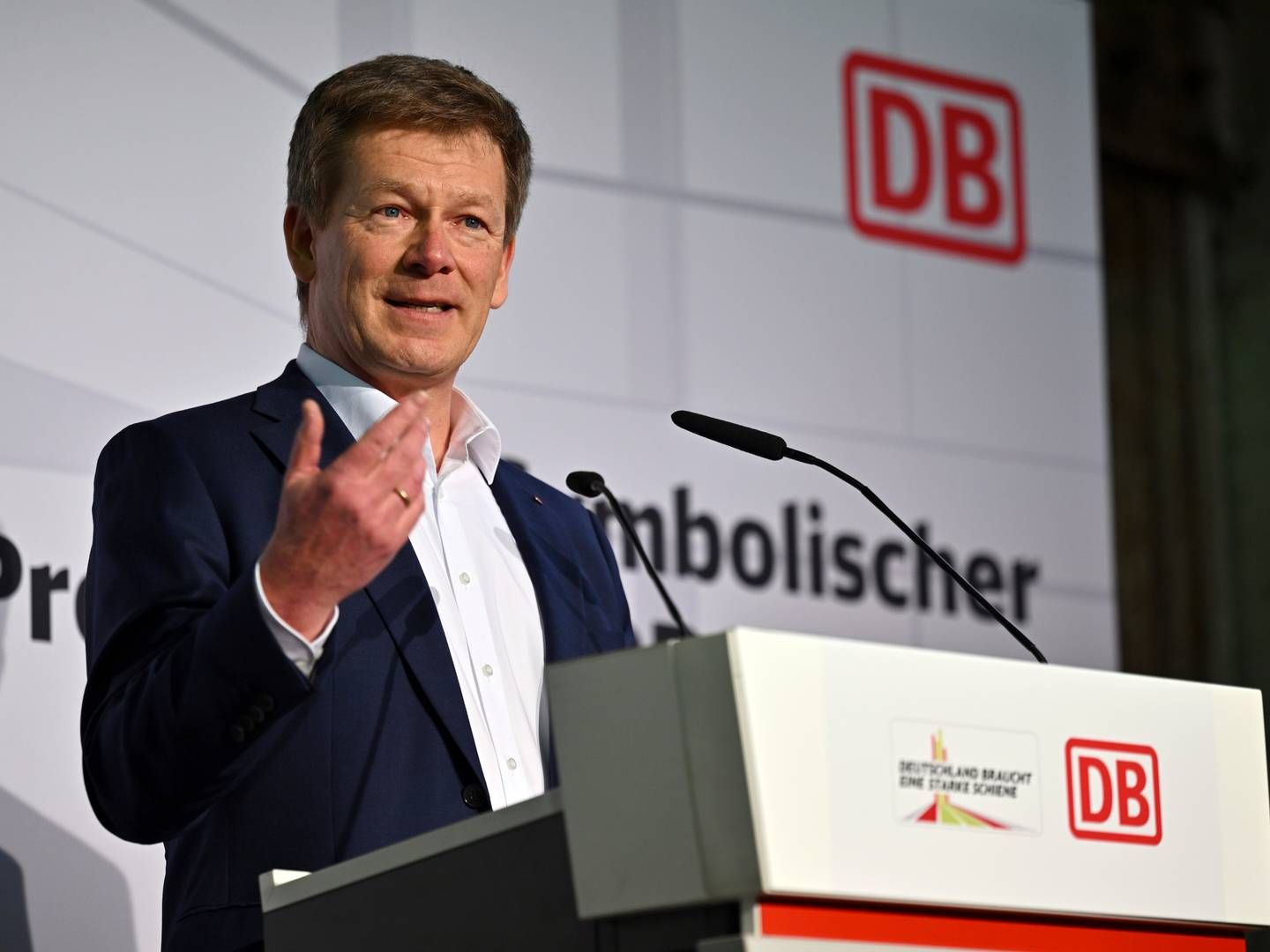"I would absolutely have done the same thing today"
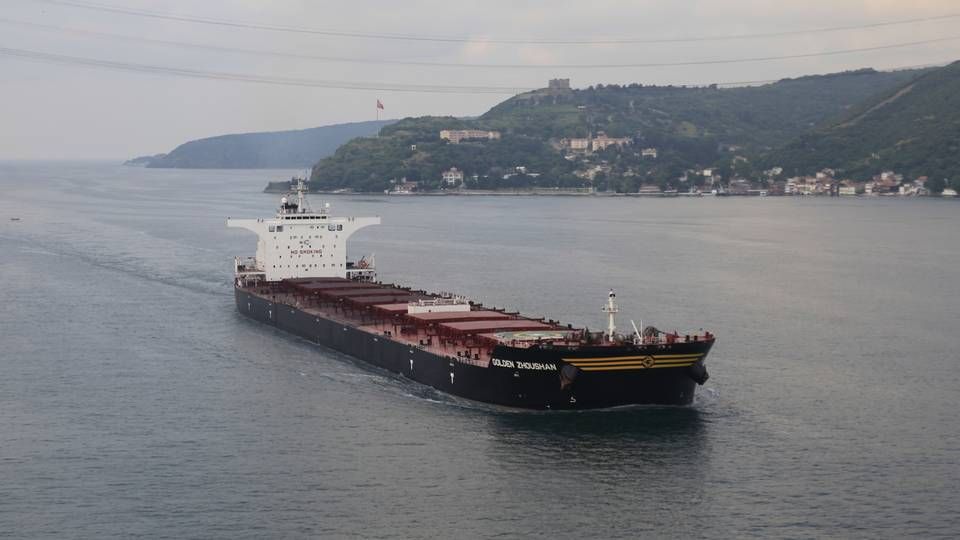
OSLO
When John Fredriksen's dry bulk carriers Knightsbridge and Golden Ocean started working on a merger of the two companies in October last year, no one predicted the scope of the dry bulk market downturn. Three months into the process, the market slowed down significantly, explains Herman Billung, who has now taken over as CEO of the new company Golden Ocean Group, and he assesses the three month old company when ShippingWatch visits the carrier's offices in late June.
"The market has been down for more or less six months now, with virtually zero volatility. Right now the arrow slightly up, so we have to see whether it lasts. It doesn't mean anything to the price in the market to merge and create a bigger company, but it counts in terms of costs, where our operations become more efficient. Market share matters in terms of being an attractive company to investors. Size matters especially to US-based investors."
Try a free 40-day trial subscription to ShippingWatch
Herman Billung was in New York some weeks ago to meet with a series of US-based investors. Golden Ocean's share price is very much following the spot market, which had at that time just experienced a setback. This meant that the company's share had also dropped, and it might thus seem like a bad time to sell the company to potential future investors. And this development did make Herman Billung somewhat nervous ahead of the many meetings.
"But I experienced that Golden Ocean currently holds a value that is attractive to US investors. We have a good profile. Considering the market these past six months, it's clear that when you're making slightly less than opex, you're far from cash break-even. But our cash break-even is quite low. So if one has to look back and ask if we would have done the same thing today, then yes, I would absolutely have done the same thing today," says Herman Billung.
Completing the merger
On Tuesday, March 31st, Knightsbridge and Golden Ocean had been merged into one company, and Herman Billung explains that he did not have any special demands in relation to this process. The most important thing, in his view, was that shareholders in the two companies considered the move a fair transaction and felt that they were being treated as equals. And it looks like they indeed did, because there were "almost no objections," as he says, at the extraordinary general assemblies. The merger also represents the culmination of John Fredriksen's holding company Hemen Holding's plans to simplify the structure of its many companies - and the recent years have been characterized by a variety of vessel transactions between Fredriksen-owned carriers such as Knightsbridge, Frontline 2012 and Golden Ocean.
"We now feel that we have a proper bulk company, so from a holding perspective they are looking for fewer and bigger companies."
Last week brought another merger between two Fredriksen-companies, namely the merger of tanker carriers Frontline 2012 and Frontline. John Fredriksen thus looks to have taken the lead with significant companies in tanker as well as dry bulk.
Fredriksen makes his move and establishes global tanker giant
More postponements could be possible
Even though Herman Billung believes that Golden Ocean Group is well-equipped for the historically low market, the company has drawn on various tools in order to create its current profile. Today the carrier has 48 ships in the water and a newbuilding fleet of 24 vessels underway - primarily Capesize, the largest dry bulk vessels, which form the core of the carrier's fleet.
Golden Ocean Group has also continuously been postponing deliveries of newbuildings by six and a half years combined. Some ships for just a few months, others have been pushed six months. A majority of the vessels are still set for delivery in 2015 and the last ones in 2017, and the question then becomes whether there is even room for that many ships in today's market.
Try a free 40-day trial subscription to ShippingWatch
"Let's see. Very few ships are set for delivery in 2015. If the market looks exactly like today for the next two years, then it won't be interesting to get new ships at all. But I don't think that's going to happen. Many ships have been scrapped recently, and I don't think the official orderbook is as big as it seems," says Herman Billing, referring to the fact that privately held carriers do not make announcements like listed companies.
Could there be more postponements going forward?
"Yes, it's possible. But it might also end up not being that bad to take delivery of ships a year from now. I think we'll see an average fleet growth around two percent over the next three years. I think we'll see growing demand, and that the second half of this year will be significantly better and more volatile. Some bad days and some good days. We won't get a replay on the first half of the year."
Golden Ocean divesting bulk vessels on a large scale
In addition to postponing deliveries, Golden Ocean Group has also signed a deal to sell 14 vessels that are either under construction or already part of the carrier's fleet. And Herman Billung has the following comment on these these kinds of deals:
"I don't think there are plans to make more of these deals. We made some moves because we wanted to strengthen our balance and to be in a better position for further consolidation. Even though it's no party in the dry bulk market, we're in a much better position than most of the other players, so I think we have a better chance of performing than most if the market remains low."
What sets you apart from the others?
"We have a better balance. We've financed our entire fleet, except for five ships that won't be delivered until next year and 2017," he says, before also citing the company's liquidity and continuous dialog and support from banks.
In April, Golden Ocean got USD 40.5 million in return from shipyard Jinhaiwan in relation to a protracted dispute concerning newbuildings that had been significantly delayed at the yard.
China should not be underestimated
China has been one of the central topics of discussion in terms of the collapsed dry bulk market, as a surprisingly low coal import into the country caught the industry off guard.
In the first quarter of the year, imports declined 42 percent compared to the same period 2014, and most observers expect that the coal import will stabilize at the current level. Herman Billung agrees with this analysis, though he is more optimistic about the demand for ore from international suppliers. He warns against underestimating the Chinese ability to act in the market.
Try a free 40-day trial subscription to ShippingWatch
"I don't believe in a collapse of the Chinese economy. You don't need the same kind of growth in China as before, as the demographic scenario is changing. I think the growth might decline toward six and later five percent. Now we'll see a new five-year plan in 2016, where they will evaluate how to distribute the pressure. It'll be interesting to see which projects China presents," he says, pointing to, among other things, the large-scale Silkroad project aimed at creating closer ties between Asia and via major investments in infrastructure projects.
"With China you never know. There are more China experts in the world than there are Chinese. So one should take care not to make cocksure statements about China."
Golden Ocean: Scrapping and no newbuildings are upside in bulk
The dry bulk crisis has also made ship values tumble down. A recent analysis from Fearnley showed that prices have declined by 50 percent in the past six months. But the bottom has been reached now, says Billung.
"The fleet value reacts very quickly to the spot market. It's incredible. It only takes a few days with a better market before more buyers emerge. I believe that we've seen the bottom in terms of ship asset values," he says, adding:
"In a way, I don't want the market to improve too much. I think it's healthy in terms of the entire fleet structure if this lasts a little while longer, as it will bring even more scrapping."
Golden Ocean Group got a taste of the declining ship prices in the first quarter of the year, where the company lost USD 75.3 million. This loss was attributed to factors including a USD 141 million impairment on five Capesize newbuildings that were sold to and leased back from similarly Fredriksen-controlled Ship Finance. This impairment corresponded to the difference between the ships' book asset value and the price the ships were sold for.
In July, Franklin Enterprises, which is indirectly controlled by funds established by John Fredriksen, acquired bonds for USD 6.2 million, according to Tradewinds.
Fredriksen's dry bulk merger settled
Golden Ocean Group in major Q1 impairment
Related articles
Fredriksen's dry bulk merger settled
For subscribers
Golden Ocean Group in major Q1 impairment
For subscribers
Rates for major bulk vessels up almost 50 pct
For subscribers


